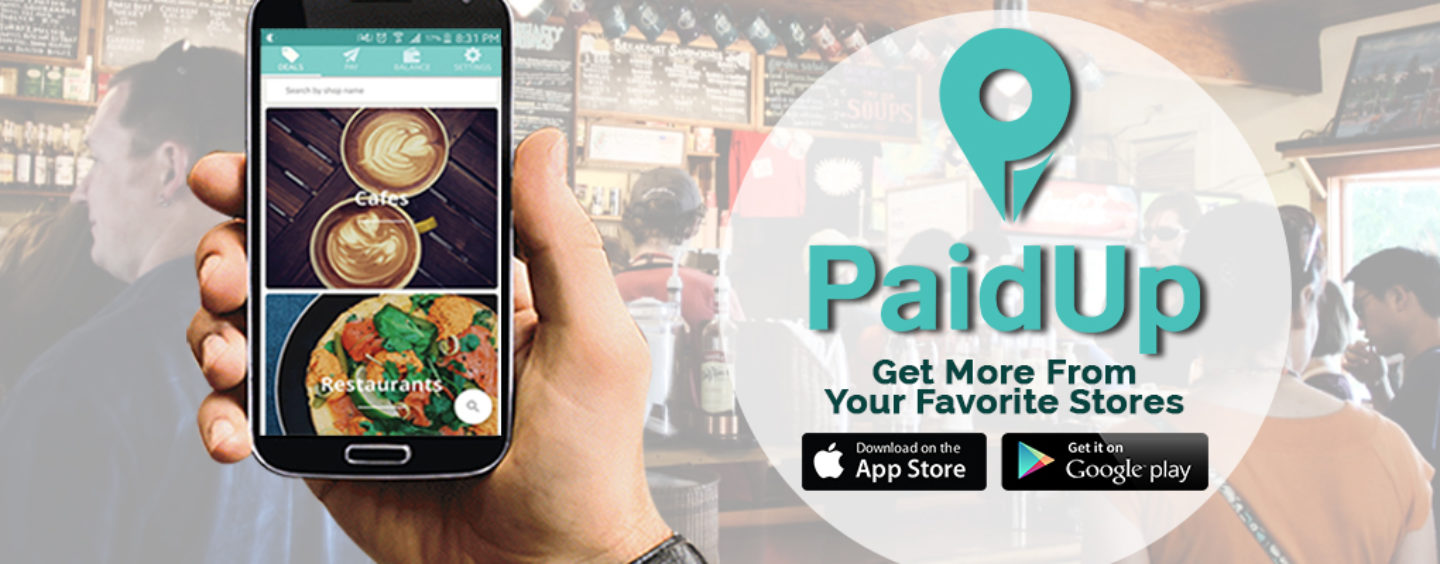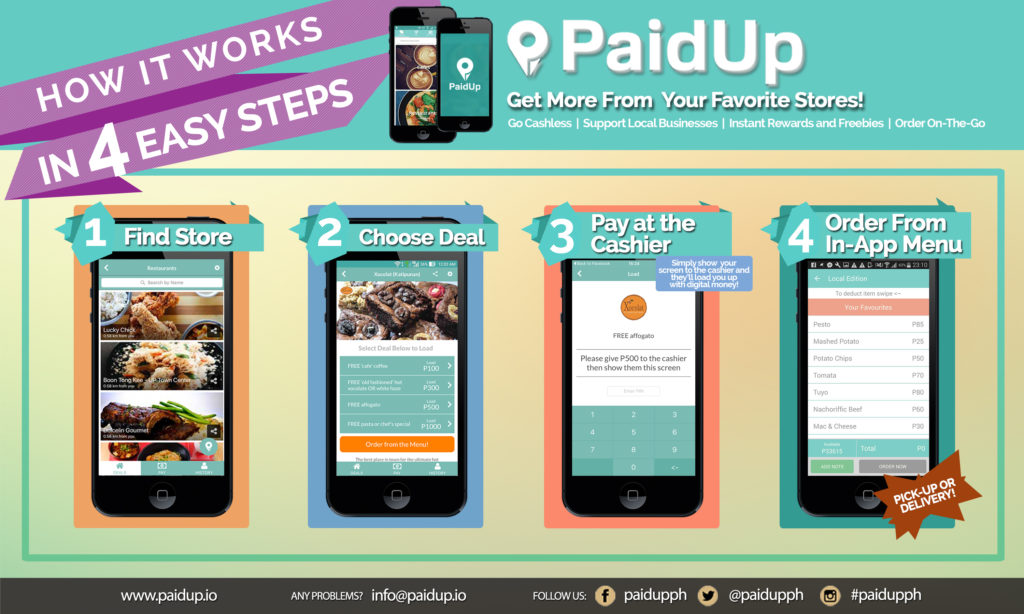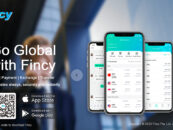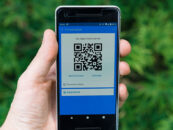
Filipino Startup PaidUp Seeks To Reinvent How We Order And Pay For Food And Beverages
by Fintech News Singapore December 12, 2016Mobile payments app PaidUp seeks to reinvent how people order and shop for food, drinks and services by allowing consumers to prepay their purchases in return for exclusive discounts, rewards and special services.
 The first pre-pay mobile wallet app in the Philippines, PaidUp started in the UK and was launched in the Philippines in January 2016.
The first pre-pay mobile wallet app in the Philippines, PaidUp started in the UK and was launched in the Philippines in January 2016.
Today, the company has over a hundred merchant partners, thousands of users, and has processed over 1.5 million PHP (US$30,000) worth of transactions so far.
“Some of our regular users have even referred to the app as ‘Uber for Food’ in the Philippines, because of the way it enables them to discover, choose, order and pay for items in one simple step, and just a few taps – and then pick-up their meal when it’s ready,” PaidUp founder Asim Haneef told Fintechnews.
Essentially, PaidUp gives users the ability to conveniently and cashlessly order foods, drinks and services on-the-go and save time by no longer having to wait around in lines or settle the bill at checkout.
On the merchant side, the app enables micro-entrepreneurs to bypass banks and “crowd-fund working capital directly from their regular customers.”
85% of Asia’s 400 million SMEs currently have no access to credit, which often is a major constraint to growth.
“[Our mission is] to help SMEs in developing countries succeed and grow to reach their full potential,” the company says.
PaidUp comes with a merchant dashboard which provides businesses with in-depth revenue and data analytics. This includes get real-time reports as well as the ability to monitor orders and payments. The system also records and analyzes customers’ habits to allow companies to target them more efficiently for future sales.
PaidUp makes money by charging businesses a monthly fee, which varies depending on the functionalities and tools they want to have access to. In addition to that, PaidUp charges between 2.5% and 7.5% per transaction.

PaidUp is now looking to raise seed funding to fuel growth. Notably, the company targets the 37,500 registered SMEs in Metro Manila and the broader 800,000+ businesses in the Philippines.
Food and beverage is just one of the industries PaidUp wants to tap into as it plans to expand to other services as early as June 2017. By December 2017, it hopes to launch in Singapore.
PaidUp is one of the 25 finalists of the Startup-O Fasttrack, an online program aimed at supporting innovative companies.
Despite its relatively nascent fintech scene, the Philippines has a number of promising startups which have emerged in recent years. One of them is Tagcash, a business initiated by UK entrepreneur Mark Vernon that seeks to offer a platform that combines social media and payment functionalities.
The idea behind Tagcash is to create an ecosystem where users would be able to chat, post “moments,” but also pay for goods and services. On the merchant side, businesses would have access to a number of features including loyalty programs, sales and booking functionalities.







